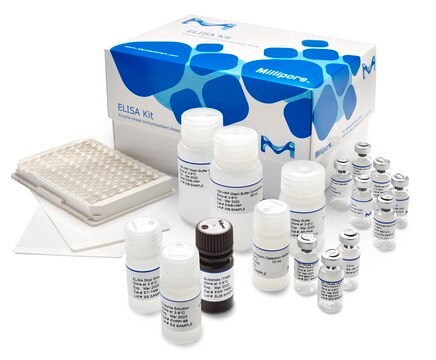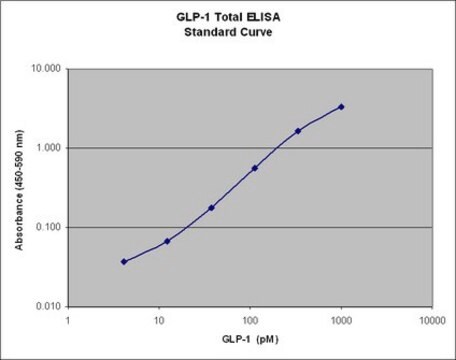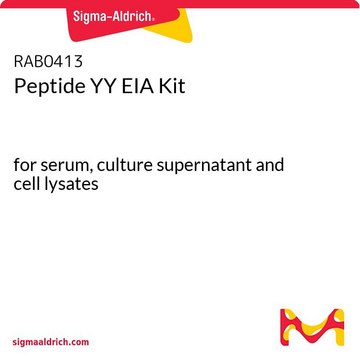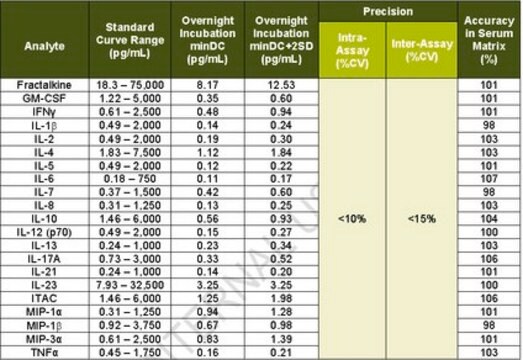EZHPYYT
Human PYY ELISA Kit
measures and quantifies total PYY levels in 20 μL serum or plasma
Synonym(s):
PYY ELISA Kit
About This Item
Recommended Products
product name
Human PYY (Total) ELISA, This Human PYY (Total) ELISA is used to measure & quantify PYY (Total) levels in Metabolism & Endocrine & Neuroscience research.
Quality Level
species reactivity
human
packaging
kit of 1 × 96 wells
parameter
20 μL sample volume (4hr assay)
assay range
accuracy: 83.3-88.9%
(Serum)
accuracy: 95.9-102.5%
(Plasma)
linearity: 94-99%
(plasma)
linearity: 97-105%
(serum)
sensitivity: 1.4 pg/mL
standard curve range: 10-2,000 pg/mL
inter-assay cv: 3.7-16.5%
intra-assay cv: 0.9-5.8%
(Plasma)
inter-assay cv: 6.1-6.9%
intra-assay cv: 1.5-2.7%
(Serum)
technique(s)
ELISA: suitable
input
sample type plasma (K2 EDTA)
sample type serum
NCBI accession no.
UniProt accession no.
application(s)
research use
detection method
colorimetric (450nm/590nm)
shipped in
wet ice
storage temp.
2-8°C
General description
Specificity
Application
Metabolism
Obesity
Metabolic Disorders
Disclaimer
Signal Word
Danger
Hazard Statements
Precautionary Statements
Hazard Classifications
Acute Tox. 3 Dermal - Acute Tox. 4 Inhalation - Acute Tox. 4 Oral - Aquatic Chronic 2 - Eye Irrit. 2 - Met. Corr. 1 - Repr. 1B - Skin Irrit. 2 - Skin Sens. 1 - STOT SE 3
Target Organs
Respiratory system
Storage Class Code
6.1C - Combustible acute toxic Cat.3 / toxic compounds or compounds which causing chronic effects
Certificates of Analysis (COA)
Search for Certificates of Analysis (COA) by entering the products Lot/Batch Number. Lot and Batch Numbers can be found on a product’s label following the words ‘Lot’ or ‘Batch’.
Already Own This Product?
Find documentation for the products that you have recently purchased in the Document Library.
Our team of scientists has experience in all areas of research including Life Science, Material Science, Chemical Synthesis, Chromatography, Analytical and many others.
Contact Technical Service








